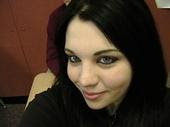(provided by wikipedia)
Waterboarding is a form of torture that consists of immobilizing the victim on his or her back with the head inclined downwards, and then pouring water over the face and into the breathing passages. By forced suffocation and inhalation of water, the subject experiences drowning and is caused to believe they are about to die. It is considered a form of torture by legal experts, politicians, war veterans,medical experts in the treatment of torture victims , intelligence officials, military judges,and human rights organizations.
*WHATS GOING ON*
Some of the first questions asked of Khalid Sheikh Mohammed upon his capture and during the time during which he was waterboarded were about possible connections between al Qaeda and Iraq, according to a review of several reports on U.S. intelligence operations.
The mastermind of the September 11 attacks was captured in Rawalpindi, Pakistan on March 1, 2003, and according to Office of Legal Counsel memos released last month, was waterboarded 183 times that same month.
The substance of the intelligence that was being sought from him has been an object of some speculation, with several defenders of the interrogation practice arguing that the goal was to prevent an impending attack on America.
But a line buried on page 353 of the July 2004 Select Committee on Intelligence report on pre-Iraq war intelligence strongly suggests that the interrogation was just as centered on a possible Iraq-al-Qaeda link as terrorist activity.
A recently de-classified Senate Armed Services Committee report quoted army psychologist Maj. Paul Burney as saying that a large part of his time on a Behavioral Science Consultation Team was “focused on trying to establish a link between Al Qaeda and Iraq.”
McClatchy newspapers, meanwhile, published an article last month citing a former intelligence official acknowledging that the Bush administration had pressured interrogators to use harsh techniques to produce evidence connecting the terrorist organization and Iraq’s regime.


No comments:
Post a Comment